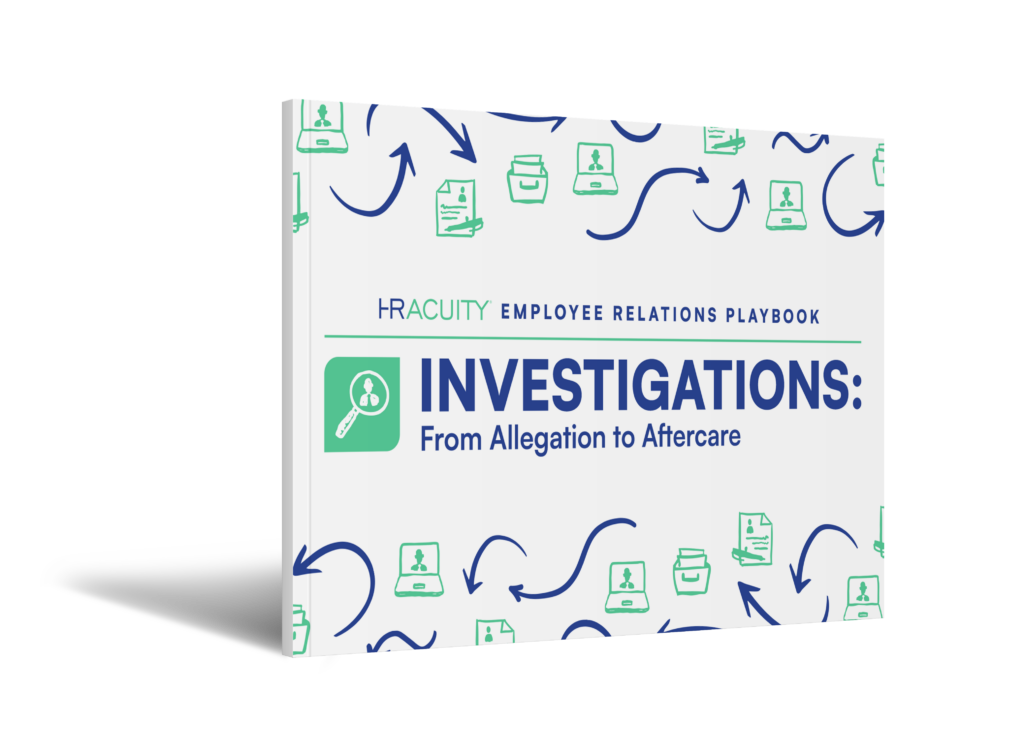This is the second article in the series. Read the first part here!
Best practices and tips for strengthening your case management skills
Some of the best tips for case managers come from those who have actively developed their case management experience by having been directly involved in the industry for years. To build your own experience, you should always be actively strengthening your case management skills so that the work you do is always at its most productive and efficient.
Strategy, strategy and more strategy
The degree to which you handle your caseload strategically will determine much of its success. Throughout an investigation, it’s important to consider the data you gather and analyze its relationship to the entire case itself as you work through the case. You should be aware of how and why each piece of evidence is vital to your desired outcome and planned corrective action. If you can strengthen your analytical skills and think critically about each data piece while looking back at possible trends across previous cases, you’re going to discover how much this information can influence your decision-making. Luckily, HR software from HR Acuity can be used as a case management tool that does the deep-dive analysis for you.
Know how and when to prioritize cases
Many people seasoned in HR case management will often integrate a system that will proactively rank cases by their priority. To make managing your caseload more time-efficient, you should have a plan set in place that will organize incoming requests based on multiple factors. These can include the request’s impact on the organization, the severity of the incident in question and how many employees are affected, and, if necessary, on a case-by-case first-come-first-served basis.
The interview is often your first source of information
Good interviewing skills will greatly increase your chances of gathering the data you need from the people relevant to your investigation or case. How you conduct interviews will likely be explained within your organization’s procedural manuals. However, you play a critical role in determining the type of questions you ask, how you guide your questions, etc. You can see increased success by planning for your interview in advance, educating yourself beforehand about the case’s key factors and removing your own bias from your findings (but trust your instinct when guiding your interview questions).
Open negotiation
To successfully negotiate, investigators need to demonstrate empathy and understanding of others’ perspectives, respect for their rights and dignity, patience and persistence. They must also be clear about what they want to achieve through the investigation, as well as how they plan to get it done. Negotiation is a conversation, not an argument. It’s about finding common ground and building trust. By listening carefully, maintaining eye contact and being respectful, you can build rapport with your partner and show that you take them seriously. Finally, remember that some things can’t be negotiated, such as the person’s account of events or the need for a fair process. You may have to work around those issues by offering creative solutions or compromises.
Critical thinking
Critical thinking is important for HR case management because it enables one to evaluate and analyze a situation to determine the best course of action. With this in mind, HR professionals can better identify opportunities for improvement and assess the best way to approach them. Critical thinking skills are also vital when dealing with difficult issues such as incidents of harassment. By questioning assumptions and challenging stereotypes, you can better detect and address problems in the workplace before they escalate.
Critical thinking skills are also useful when evaluating new hires. By identifying qualities such as integrity and empathy, HR professionals can determine which candidates will be a good fit for their organization and who will be less likely to become a problem. At the same time, critical thinking skills help HR managers spot red flags which can indicate potential issues such as absenteeism or underperformance.
Respectful communication
The attribution rate of failed business relationships and workplaces to a lack of respectful communication and collaboration is 86%, according to Pumble. Not only does proper communication improve productivity, but it also decreases employee turnover and fosters a more cohesive work environment. In turn, workplace investigations should become less frequent because there will be fewer disputes. Being respectful in our communication allows us to feel heard and understood by the other person and helps us establish a genuine connection. As an HR or ER leader, your communication skills will rub off on your team. Keep an eye on your body language as well, because gestures such as crossed arms can change the entire demeanor of a conversation.
Be a listener
If you’re prone to thinking about what you’re going to say while another person is talking, it’s time to nip that habit in the bud. Active listening is a key skill for case managers. It’s more than simply taking notes or looking someone in the eye while they speak. You need to be reading the body language of the person with whom you’re speaking. Stop saying “right” while someone is talking, because it will do the opposite of encouraging someone to continue. Instead, when it’s your turn to respond, repeat a piece of what they said, ask for clarification if needed and have them agree or disagree with your interpretation.
Be a teacher
Your role as HR as well as case manager means you’re often working directly with employees. Your guidance and teaching can positively encourage them to take well-calculated risks and push themselves out of their comfort zones. When employee relations managers focus on professional development in all areas of the employee journey, they can foster open communication and healthy connections between employees. Happy employees are less likely to find themselves embroiled in conflict. Provide staff with opportunities to develop through on-the-job learning activities.
Be an advocate
Being an advocate is important in every human resource case. You are the person who can help the employee navigate through the difficult process of a workplace investigation. It’s one thing to be approachable; it’s another to be an advocate. Being an effective advocate means you are looking out for the best interests of your employees at all times. Supporting your employees also requires you to approach each situation with a high level of empathy and understanding. For example, if you feel that executive management isn’t handling a case as quickly as it should be, it’s important to raise the issue so that the case can be resolved promptly. By doing this, not only are you advocating on behalf of your employee, but you’re also working to ensure that they receive fair treatment.
It’s essential to know how your role in human resources comes into play in successful case management.
Download the Employee Relations Playbook
Everything you need to know from
Allegation to Aftercare.

The role of HR in effective case management
Human resources will play a crucial role in your organization’s case management. In addition to recruiting and training the right staff, you’re also responsible for ensuring that policies and procedures are followed. Additionally, HR can act as a liaison between key players of the organization and external stakeholders such as government agencies and insurance companies. This helps to guarantee that everyone is working toward the same goal.
The job description of a case manager will necessarily overlap with human resources. There are multiple job duties of a case manager that are transferable between ER and HR, such as providing ongoing training and support, as well as identifying and utilizing de-escalating strategies and relevant resources. By working to excel in your duty as an HR manager while relying on the insight and order provided by a strong case management system, you will also improve in your role as a case manager.
It’s effectively up to you to continually aim to improve the efficiency of any given HR case management procedure. Seek out and implement human resources and employee relations software that will streamline your case management processes by giving you a centralized network for storing, sharing and monitoring data, as well as gathering insights about your employees’ behavior
The best HR software helps with case management by providing a central hub for all the information related to a given case. It also helps in managing cases by tracking their progress and assigning tasks to relevant team members. Whether you’re simply managing an employee’s current position in their employment journey or conducting a workplace investigation, HR Acuity can provide your organization’s HR team with customizable platforms that intuitively track your data and take some of the weight of case management off your shoulders.
Reach out for a conversation with an HR Acuity expert and request a free demo of any of our products today.



